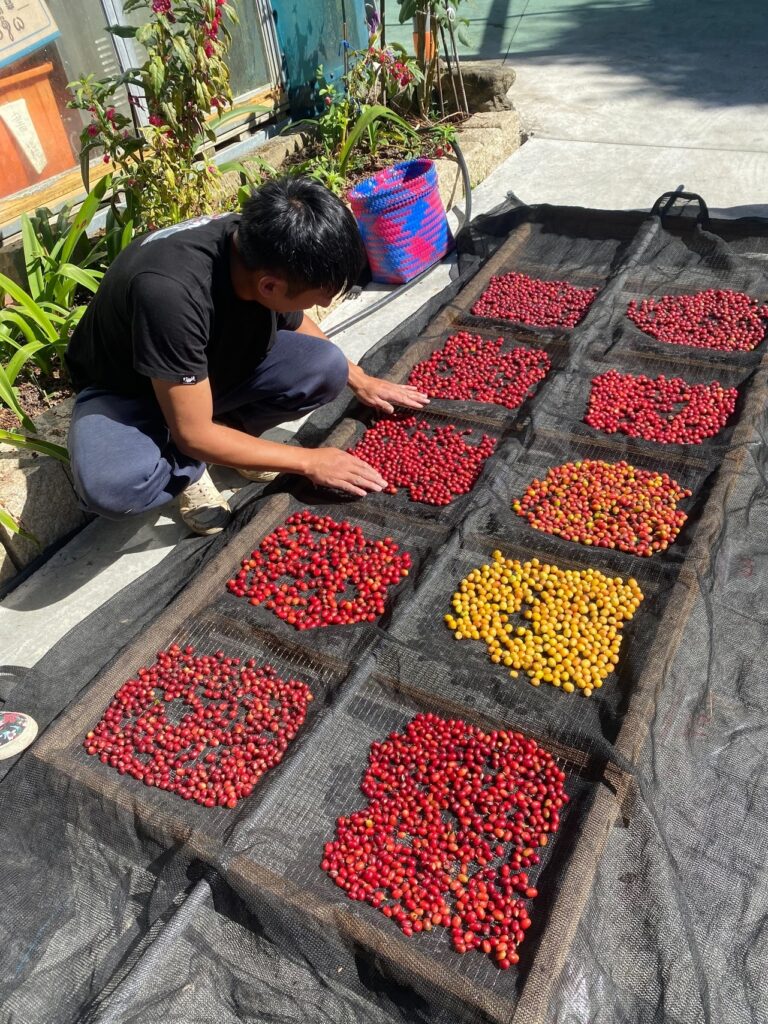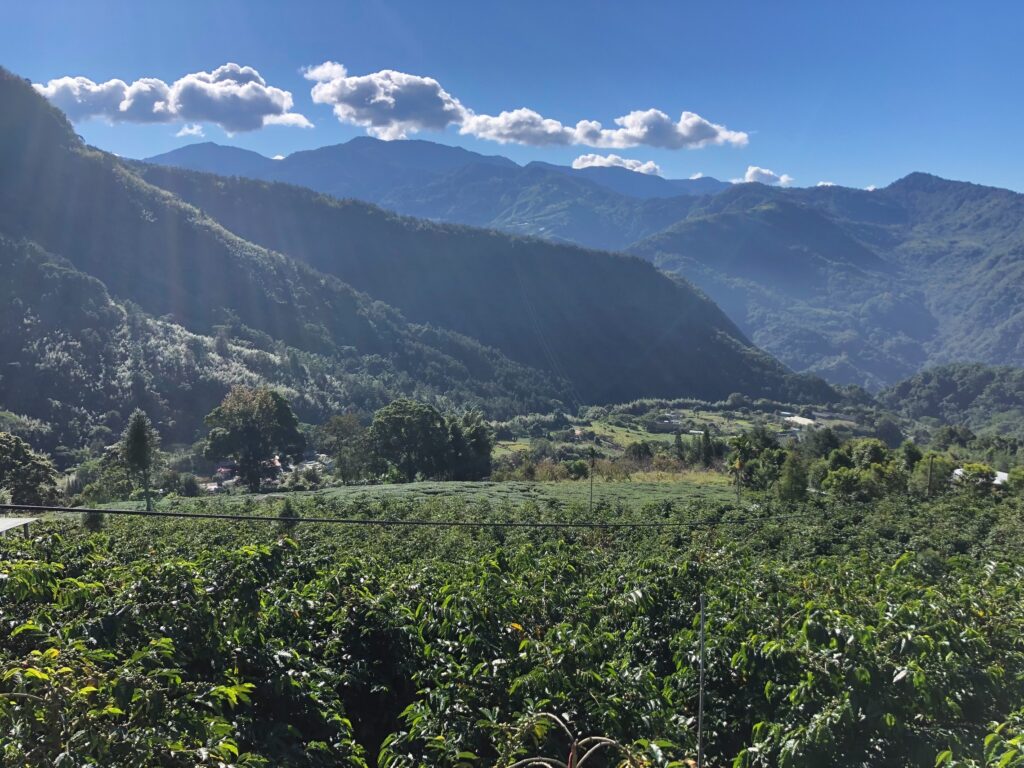Taiwan’s specialty coffee doesn’t (yet) have the stellar global reputation of the country’s award-winning baristas. But coffee growers focused on sustainability aim to change that.
While Taiwanese baristas have recently taken home several of the field’s top awards, they typically fill cups with imported coffee. This is hardly surprising, given that the average size of a Taiwanese coffee farm is one hectare, which translates to only one ton of beans a year per farm. The entire country produces just 790 metric tons of beans annually, while Indonesia, produces roughly 700,000 tons. In addition to the small size of Taiwanese farms, the nation’s labor shortage (due to an aging population) also limits production.
What’s more, explains Fang Zhenglun (known as Aaron), whose Arabica coffee farm — Zou Zhuyuan — is located in the scenic Ali Shan Mountains of Central Taiwan, “The labor costs in Taiwan are high and output is small, so our prices will definitely be higher than those [for beans] imported from abroad.” So, he adds, to justify the higher price, “the quality of our product must be high enough.”
Aaron is part of a growing number of farmers focused not only on quality, but also on sustainability. He relies on smart agriculture, whereby information about growing conditions is constantly uploaded and accessible to Aaron via an app on his phone. “I can know whether this [or that lot] is short of water,” he says. “This prevents the wastage of limited water resources.”
Aaron is also in direct communication with the majority of his customers, who range from farm visitors to local cafés and roasters. This focus on local sales stands in stark contrast to the sales of many commercial coffee growers, who ship their beans long distances and consequently have a heavier carbon footprint. Commercial coffee, although cheaper than specialty coffee, comes at a cost not only to the environment, but also to workers’ rights. Commercial beans are usually grown on large farms that employ underpaid laborers. In Indonesia and Brazil, these large-scale coffee farms have also contributed to deforestation.

Also, Aaron says, because the focus is on quantity instead of quality, the taste of commercial coffee typically suffers. Most commercial coffees are dark roasts, meaning that they are roasted for longer. Ripe beans may be mixed with improperly ripened ones, or low-quality beans may be mixed with higher-quality ones, because darker roasts hide these inconsistencies and result in a more uniformly bitter taste — what we typically associate with coffee.
Specialty coffee, by contrast, uses lighter roasts and emphasizes the unique flavors of different coffee varieties created by soil growing conditions as well as harvesting and processing methods. A cup of specialty coffee can be traced back to a specific farm or even a specific lot on a farm. “Single-origin coffee” is the term used to describe beans that can be traced in such a manner, and this kind of coffee is distinguished by its non-bitter taste profile, often described as acidic, floral, or fruity.
Barista Chad Wang, winner of the 2017 World Brewers Cup, loves introducing coffee drinkers to specialty coffees. “I never get tired of when I see a new customer tasting single-origin coffee, maybe from Ethiopia, and they think, ‘Wow, this coffee is fruity and floral.’ And they . . . ask, ‘Did you add something to the coffee, or is the coffee like this?’ It's that process I think that leads people into [specialty] coffee.”
Chad also believes that specialty coffee supports family farms and the environment. The Taiwanese government recognizes specialty coffee’s ability to protect the environment compared to the traditional cash crop, betel nut. Some municipalities have created programs to encourage farmers, through subsidies and other means, to substitute betel nut farms with coffee plantations, in an effort to combat both the harmful health effects of chewing betel nut (a mild narcotic popular among laborers) and soil erosion, since coffee root systems better protect the soil.

Aaron’s farm (located in Ali Shan, a region famous for forests clouded in mist, cherry blossoms in spring, and majestic views of Taiwan’s tallest mountain, Yushan) has won many prestigious awards for the high quality of his beans. His customers include the coffee shops of champion Taiwanese baristas like Chad Wang. Visitors to the farm can witness the care he invests in his operation and experience every stage of coffee production — from planting to brewing — to understand what goes into a premium cup of coffee. The farm even has a café where you can have coffee while enjoying mountain views.
But the care he puts into his farm is expensive. Beans are hand-picked or harvested one by one to ensure that they are properly ripened. His pay to farm workers is much higher than that of commercial farms in places like Latin America. “The harvesting wage in Colombia is [US$0.19/kg],” he says. “My workers make [US$1.24/kg].” In short, his farm workers make over six times what Columbian workers earn.
Aaron claims that the most expensive coffee he sells goes for about US$11 per cup — the price of five lunch boxes in Taiwan. “A consumer who doesn't know much about specialty coffee,” he says, “will judge this price as way too high.” He hopes that intimate knowledge and connections with the coffee-making process gained during farm tours can help coffee drinkers appreciate the true value of specialty coffee. Which includes sustainable growing.


